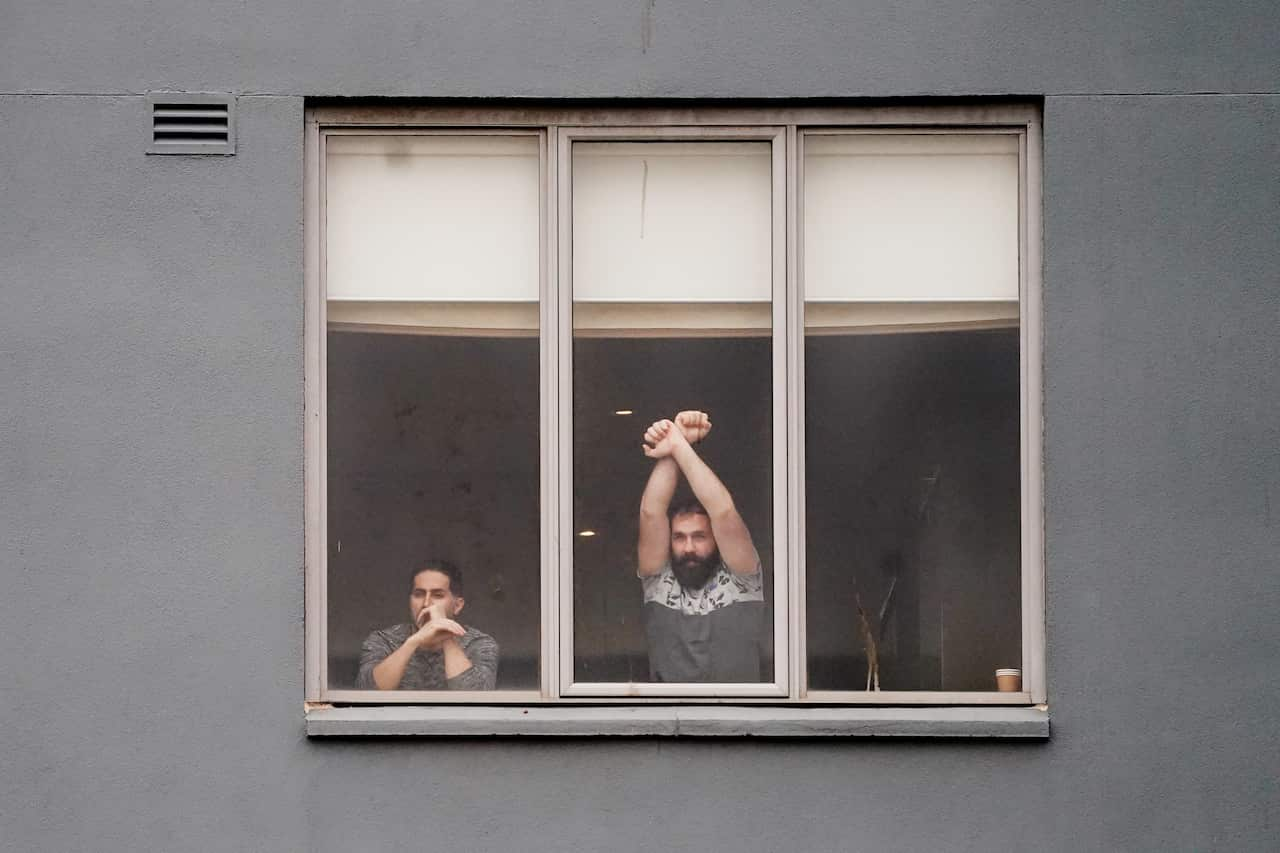Independent Senator Jacqui Lambie has announced she will vote against a controversial bill that would effectively ban mobile phones in immigration detention centres.
The government claims mobile phones present an unacceptable risk, and have been used to facilitate escapes, smuggle drugs and organise criminal activity.
But human rights advocates have warned the proposed changes would cut asylum seekers and refugees off from the outside world.
Senator Lambie announced her positon on Friday, saying she was initially "on the fence about it" but had made her decision to vote against the bill after consulting the public.
She said she received more than 100,000 responses to a survey on the bill, which is currently before the Senate - 96 per cent of which wanted her to vote no.
"I thought there were some good points and bad points to the bill," Senator Lambie wrote in a statement announcing her decision to survey participants.
"To be honest, the sheer numbers for and against aren't the only thing I took into consideration when I made this decision to oppose the phone ban bill. But it was an important one."
Senators Stirling Griff from the Centre Alliance and independent Rex Patrick have previously voiced their opposition, making it unlikely the bill will have enough votes to pass the upper house.
The proposed changes would grant Home Affairs Minister Peter Dutton and acting Immigration Minister Alan Tudge power to prohibit certain items, including mobile phones and sim cards, and grant Australian Border Force officials additional powers to search detainees.
Mr Tudge has previously said the changes were necessary due to the "large proportion" of people in immigration detention who are facing deportation due to criminal convictions, claiming mobile phones present an unacceptable risk as they have been used to facilitate criminal activity.
“Currently a detainee could have a bag of cocaine, instructions on how to build a bomb, or child exploitation images in their room, and the ABF would be powerless to seize it – clearly this is unacceptable," he said in May when the legislation was first introduced.
According to Mr Tudge, however, the bill will not be used to implement a "blanket ban" on mobile phones and would only be invoked when wrongdoing is suspected.

Labor and the Greens oppose the bill and Centre Alliance MP Rebekha Sharkie voted against it in the lower house. The government needs the support of at least three crossbenchers for the bill to pass the Senate.
Asylum Seeker Legal Centre (ASRC) chief executive Kon Karapanagiotidis welcomed Senator Lambie's decision in a statement on Friday evening.
“Thank you to the senators that have listened to the community and committed to vote down this unnecessary and harmful bill,” he said.
Nina Field, a caseworker at the ASRC, previously told SBS News mobile phones were a "lifeline" for people in detention, allowing them to connect with lawyers, doctors, caseworkers, and their families.
Due to the COVID-19 pandemic, visitors have been banned from Australian immigration detention centres since March, meaning mobile phones are often the only way detainees can connect with friends and family in the wider public.
Earlier this week, Senator Lambie revealed she would also vote against a university funding reform bill that she said would unfairly penalise poor students.
"I'll be damned if I'm going to be the vote that tells the country that poor people don't get dream jobs," she said in a scathing statement on Wednesday.
"This bill makes university life harder for poor kids and poor parents. And not only does it not have the same impact on wealthy families, it even gives them sweetheart little discounts."

